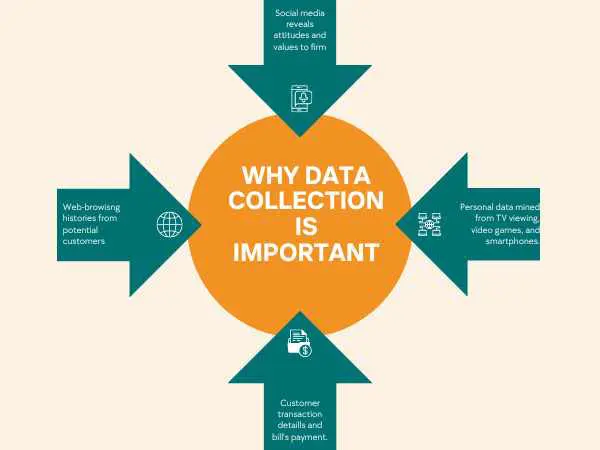Why Data Collection is Important | 5 Key Reasons
In today’s data-driven world, the importance of data collection cannot be overstated. From guiding strategic decisions to understanding customer behaviour, data collection lies at the heart of effective business operations. However, many still struggle to grasp why data collection is important and what exactly it brings to their business.
That’s why, in this article, we’ll be exploring the various reasons why data collection is important for the success of your business.
What is Data Collection?
Data collection is the process of gathering and evaluating data from various sources about a certain research. The common goal of this process is to generate insights that can lead to improvements in a particular field or business. Although methods and goals may vary across different fields, the data collection process remains the same.
So, before you begin collecting data, you need to consider:
- The aim of the research
- Type of data you intend to collect
- The methods you will use to collect and process the data
Why Data Collection is Important
Following are some benefits of data collection and why it’s important to implement in your operations:
- Make Informed Decisions
Data collection plays a vital role in decision-making when running a business. In fact, 95% of businesses rely on statistical data to make informed decisions. This is because data analysis provides factual insights that assess the impact of your current choices and lead to better opportunities. So, the more data you have at your disposal, the better positioned you’ll be to make informed decisions.
- Helps Identify Problems
Gathering and analyzing relevant data can give you a detailed view of potential issues in your business. You’ll be able to identify patterns in your operations that indicate areas where improvements are needed. For example, data analysis can reveal underlying problems like declining sales figures or the nature of customer complaints.
Additionally, data can highlight inconsistencies between expected and actual outcomes, prompting further investigation into the root causes.
- Provides Strategic Approach
Another reason why data collection is important is because it offers a strategic angle to your approach. By gathering relevant data, you can analyze important factors like customer preferences and competitor strategies. This information will then help you create a business strategy that meets specific goals and identifies opportunities for improvement.
For example, data on customer feedback can provide valuable insights into what your product lacks. This way you can develop or refine new products that better meet the customer’s needs.
- Identifies Market Trends
Data collection can also be instrumental in researching market trends within various industries and sectors. This process allows you to uncover patterns that provide valuable insight into consumer behaviours and industry developments. You can then apply these insights to your services to stay ahead of the competition.
For example, in the retail industry, data collection allows businesses to track sales trends and anticipate future demand. This will help retailers adjust their inventory and optimize pricing to maximize profitability.
- Backs Up Your Argument
Having relevant data on hand is essential when you’re advocating for improvements and the growth of your business. Whether you’re endorsing increased funding or policy reforms, the data serves as evidence that supports arguments for change. It provides concrete examples of the current state of affairs and highlights deficiencies or needs for improvement.
So, by utilizing collected data in your efforts, you can add credibility and persuasiveness to your arguments. It will provide a clear and logical basis for why making certain changes are necessary.
Conclusion
Data collection is crucial for businesses to operate efficiently and effectively. Benefits like identifying market trends, making informed decisions, and developing strategies all advocate for why data collection is important. The process will only further encourage improvements in your business’s performance and meet the needs of your customers.



